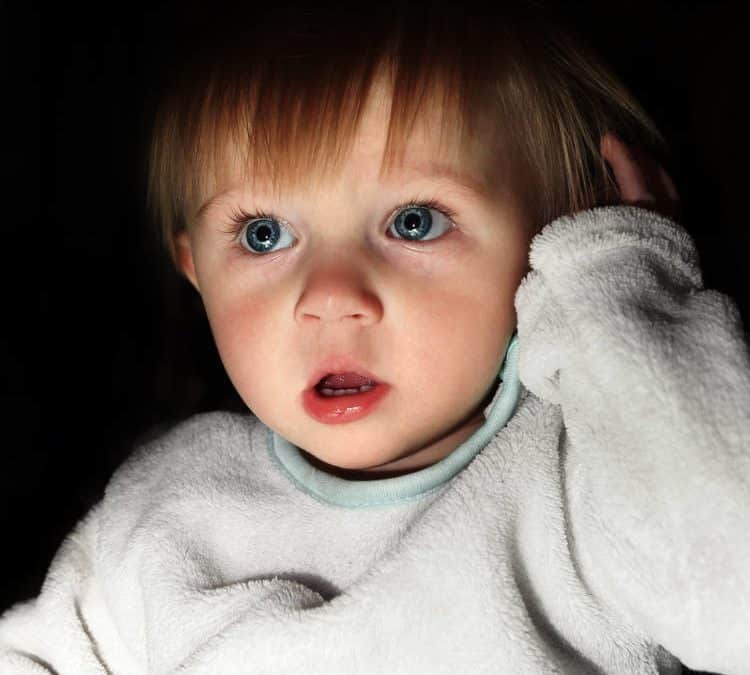My 2-year-old Son is Suddenly Afraid of the Dark
Dear ZERO TO THREE,
Q: My child is suddenly afraid of the dark. He wants us to leave the light on when he goes to sleep, and if we turn it off after he’s asleep, he awakens in the middle of the night screaming. What should I do?
—Concerned Parent

Help us spread the message that positive parenting matters.

Author
Senior Director of Programs
Reflection can help to focus our attention on the importance, the beauty, and the fragility of relationships. By putting…
- A: Fear of the dark is quite common, especially at this age. In order to understand why your child is afraid of the dark and what you can do, consider where your child is developmentally. By 2 1/2, most children are very engaged in the world of pretend and imagination, and they don’t fully understand the difference between fantasy and reality. In their minds, anything can happen at night: the dragon from the bedtime story or the clown from the party could suddenly appear out of the shadows to scare them
- Next, think about any recent changes in his world. Has there been, for example, a separation from a loved one, a new baby, a new babysitter, a recent move? Any change can cause a child to feel insecure and fearful.
- Finally, your child’s temperament is important to consider. Children who are by nature more fearful and cautious, or, who get overstimulated easily, are more likely to develop fears
By 2 1/2, most children are very engaged in the world of pretend and imagination, and they don’t fully understand the difference between fantasy and reality. In their minds, anything can happen at night: the dragon from the bedtime story or the clown from the party could suddenly appear out of the shadows to scare them.
Rebecca Parlakian
- To help your child overcome his night fears:
- Don’t tease him about the fear (even in good humor), or try to talk him out of it. This can prolong the fear as well as erode his trust in you.
- Try to control any anger or frustration you might feel. This can increase your child’s distress. It also makes it harder for you to respond sensitively.
- Make one of your child’s special stuffed animals his “protector” and include it in his bedtime routine. During the day, act out stories where the protector watches over others.
- Let him sleep with a night light or leave the hallway light on with his bedroom door open. Using a dimmer may also help. Let your child decide when he’s ready to darken his bedroom.
- If your child wakes up in the middle of the night, resist the temptation to bring him into your room. This sends the message that he really is not safe alone in his room. Instead, go to him to reassure him that the monsters aren’t real.
- Most children outgrow these fears in a few weeks or months. Your best strategy for now is to be sensitive and patient with your son and know that this, too, shall pass
Read More

Next Up
Go to Next Resource24–36 Months: Social-Emotional Development
As two-year-olds, children really begin to play interactively with their peers. Learn more about toddler social-emotional development.
